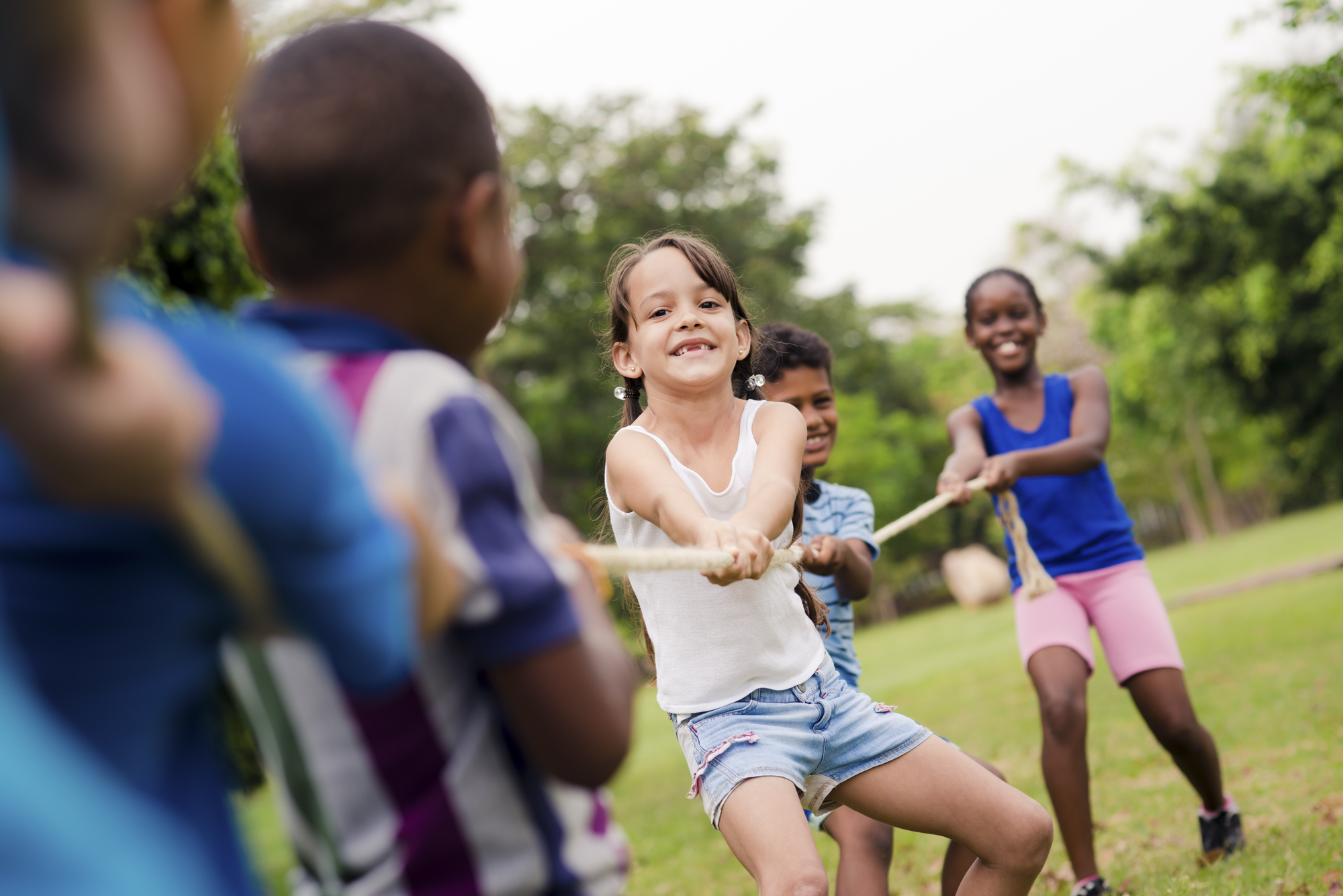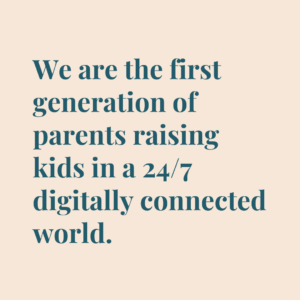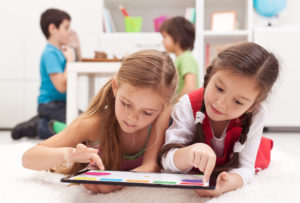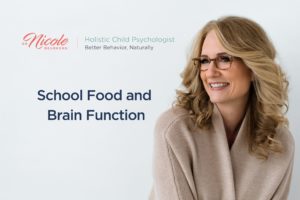A message from pediatricians: kids need more play time!
It’s easy to overlook the power of play in our children’s development. However, playing offers a whole lot more than just being silly and getting out the wiggles. In today’s world, playtime is essential. Allowing children plenty of time to play is key to developing skills that our kids need to navigate an increasingly complex world.
In late summer, the American Academy of Pediatrics (AAP) took a significant step, one that both surprised and delighted me: they encouraged pediatricians to prescribe play for children. The AAP is recommending pediatricians become stronger advocates for play, helping to educate and inspire parents to facilitate—and participate in—playful activities with their children. Plain and simple children need more playtime.
I couldn’t agree with this more
Playtime helps build social, emotional, behavioral and cognitive skills in children, from infancy onward. Movement-based play helps protect and enhance children’s physical health. Playtime increases resiliency, emotional and behavioral self-regulation. Playtime also lowers risk for depression and anxiety and strengthens the nurturing, trusting relationships between parents and children.
What kind of “play” exactly?
Before we go any further into what prompted the new prescription for playtime from the AAP, let’s take a minute to define “play.” Playtime is a fun, discovery-filled, joyful activity. It is self-motivated—it arises from a child’s fundamental interests, curiosities, and preferences. While play can and should be supported and monitored, so children are safe, playtime is best and most effective when it’s not directed or controlled by caregivers. When children play, they’re free to go wherever they want, imaginatively speaking.
Why the need to prescribe playtime?
The notion of children playing sounds like the most natural thing in the world, doesn’t it? So how did we wind up with a need for pediatricians to prescribe play for children?
There’s been a marked decrease in play, and playful learning, for many years now. There are many reasons for this. Budget and time “cuts” to recess, art, music, and physical education have limited playful activities in school. There’s been a marked shift to a focus on building children’s skill sets for academic achievement. Out of a well-intentioned desire to see our children succeed, we as a society have placed increasing emphasis on structured activities intended to improve academic performance. Parents often feel pressured to enroll their children in as many formal “enrichment” classes as their schedules allow.
Children are starved for playtime
Children today have less time for pure, unstructured play. Research shows children between the ages of 3-11 have lost 12 hours a week of free time. There is a vast body of research showing the benefits of playtime for children’s development.
How playtime affects a child’s brain
From early life and onward, play promotes brain development—the creation of a brain structure that can support all the neural activity needed for a lifetime. Playtime also promotes better brain function—how well the brain performs its incredible range of tasks.
Studies show that playtime may affect the development of areas of the brain used for thinking, reasoning, and social interaction. Also appears to stimulate the growth of brain cells and regions of the brain used for emotional processing and problem-solving.
Benefits of playtime
Play allows children to explore, within the safety of make-believe scenarios, real-life questions, risks, issues, and ideas. It gives them opportunities to collaborate and engage socially, with their peers, parents, caregivers, and teachers.
There’s a wealth of scientific evidence showing the benefits of play for children’s social, emotional, physical and intellectual health and well-being.
Playtime during childhood fuels the development of what’s known as our executive functioning skills. Our executive functioning skills include:
- How we think, reason, plan and make decisions
- How well we learn and integrate learning into our memory
- How successful we are at adapting our thoughts and behaviors, based on what we learn and experience
- Our ability to focus our attention, and follow through on short and longer-term plans and goals
- Our ability to exert self-control, and to self-regulate our emotional responses and behaviors
The skills that fall under executive functioning equip us to navigate the world successfully, be responsible, do well in school, form healthy relationships, live productive, meaningful lives.
A closer look at the benefits of play
Play enhances children’s language skills.
One study found pre-school children who were encouraged to play with blocks with only limited direction from adults showed more significant gains in their language skills six months later. When it comes to language, playing with simple, traditional toys does a better job of promoting language skills than electronic gadgets, according to research.
Play promotes social skills and positive relationships.
By playing with others, children learn how to negotiate, cooperate, and communicate more effectively.
Play supports emotional health, self-awareness, and self-control.
Playtime allows children to explore and express their feelings, from within the safety of an imaginative, make-believe world. Studies show playtime may help children learn how to manage strong emotions better, and develop the self-control that helps to balance feelings of impulsiveness and aggression. Also helps to keep the body’s stress-response in check, providing children with a powerful buffer against the physical and emotional effects of stress.
Playtime improves physical health.
Children have a natural, innate love for using their bodies. The movement and physical exertion of playtime give them a whole range of protective benefits. Regular routines of physical play can help children keep at a healthy weight and supports the health of children’s developing cardiovascular and immune systems. Studies show playtime in children improves their coordination, balance, and flexibility – lowers risk for injury too. Physical play can help children sleep better.
The absence of play in children’s lives can have negative consequences for their physical, emotional, and intellectual development. Research indicates a lack of playtime is linked to increases in the prevalence of attention deficit hyperactivity disorder (ADHD). As the AAP report points out, when they lack play, children lose an essential buffer against stress. Less protected from stress, children’s development—of their executive function and the social and emotional behaviors that are so important to their ability to successfully navigate the world—can be disrupted.
Play equals healthy relationships
Scientists have found play exists in many animal species, not only in humans. Social play, in particular, exists in animals with brains that are similar to humans and is thought to help equip them with survival skills. Our need for play is no less essential for building the skills that support our healthy survival.
Playtime is fun, thrilling, and delightful for children and fun for adults too. Encouraging our children to play opens up a world of relationships and connections—to other people, and also to children’s sense of themselves.
Think about all the ways children explore and develop relationships during play. In solo play, children inhabit imaginary worlds where they experiment with roles and relationships they observe in the world around them, from acting as a nurturing mommy or a daddy to their stuffed animals to being the teacher at the head of a pretend classroom. When playing with other children, kids establish rules and norms. They collaborate to reach their goals, whether that’s building a tower of blocks or coordinating a game of flashlight tag in the backyard. Group play gives children the opportunity to develop social skills they’ll need for their entire lives.
Parents are nearby, so children feel safe but self-directed, or free play is essential to fostering our children’s self-awareness of their preferences, emotions, and interests. In many ways, our children learn who they are through play.
We are our children’s very first playmates
You have a critically important, active role in your child’s life. All the cooing, smiling and making silly faces we do with our newborns establishes the bond of our child’s very first relationship and develops their foundational communication skills. The back and forth activities we engage in with our toddlers—from peekaboo games to laughter and sounds are building their language skills, helping them learn to express themselves, and understand how they relate to the world and other people. Playing with our kids helps them learn to be gradually more independent, more curious about the world, and more able to regulate their behavior.
As parents, we also serve as a safe harbor for our children as they experiment, and take growth-producing risks in their play. Any parent who’s helped a child climb a ladder at the playground or learn to ride a bike knows what this experience is like, and how important it is to develop a child’s confidence and sense of self, alongside new physical skills.
Parents and caregivers who play with children get to share in a whole range of positive, life-affirming emotions—joy, humor, satisfaction, surprise. When you play with your child, you get to know your child better and see the world from their point of view. Research shows that parents who read to and play with their children develop stronger connections and also experience less parenting-related stress.
Don’t wait for your child’s pediatrician to “prescribe play”
Encourage movement at every age
Playful physical activity is a powerful portal of discovery for children, a way for them to get to know their bodies and physical abilities. It also encourages stronger coping skills, reduces their physical responses to stress, and lowers risks for depression.
Support both free play and guided play
Free play involves children playing independently, on their own or with peers, in a safe environment. Guided play gets parents and caregivers directly involved in playing, at their children’s level. Both are critical for children’s development.
Cut back on the use of electronics
Using electronic devices is not the same as “real play.” Watching TV, playing games on a phone or tablet, are passive forms of recreation—not the active, creative, social play that most benefits our kids’ development. Establishing ample, regular electronics-free time for kids encourages them to play.
Let children lead
As parents, it’s crucial for us to let our children be the drivers of their own play experiences. Being responsive, encouraging, engaged and enthusiastic is more helpful to our children than taking charge, and directing their play for them.
Read, tell stories, and sing
Want to stimulate your child’s curiosity, creativity, and language skills, and delight them all at the same time? These simple, joyful activities are at the heart of a child’s playful routine. Pair the singing with movement, such as clapping hands and wiggling feet, or dancing. Also, use your reading and storytelling as a springboard for children to engage in spontaneous, imaginative play of their own. Here’s another article I’ve posted about Reading and Language Development for Young Children.
Listen, talk and respond
The kind of play that helps our children most isn’t complicated. It doesn’t require fancy, expensive toys. It doesn’t need to happen in a class, and it doesn’t require hours of uninterrupted free time. Positive, developmentally beneficial play can happen at any moment. Being responsive to their sounds and eventually to their words, encouraging them to talk to us and listening to them when they do— helps our children’s social, emotional, cognitive and behavioral development.
Let yourself have fun
Playing with children can be one of the great joys of parenthood, a chance to experience the world again as new and exciting through their eyes. Playing with our kids allows us to know them better as the unique individuals they are. It allows us to communicate better with them as they grow into their own, increasingly independent selves. It creates bonds that will last for a lifetime.
What You Should Do Next:
Sign up for my Better Behavior Naturally community newsletter
Sign up for my newsletter to get tips, resources, and supports to improve your child’s attention, anxiety, mood, and behavior…while making your job as a parent easier.
Enroll in one of my workshops
Check out one of my many workshops where you’ll join my exclusive community of parents in a one-of-a-kind virtual resource accessible 24/7. Whether you’ve got a child with a diagnosis like autism or ADHD, or are becoming more and more frustrated with a child who struggles to listen and cope, these workshops are designed to give you the information, tools, and support you need…whenever you need it.








